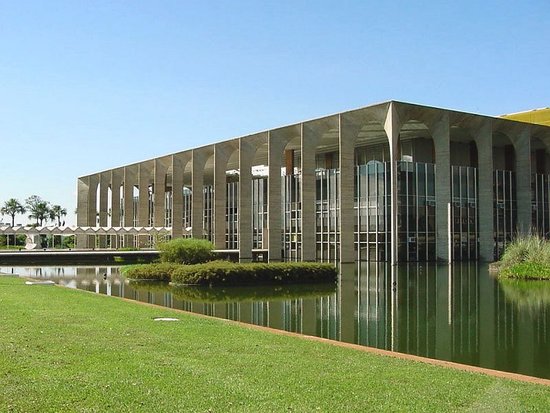In yet another unmistakable sign that Brazil’s President Rousseff seeks to decrease her country’s engagement in international affairs, the Foreign Ministry announced that it would dramatically reduce this year’s intake of new diplomats, effectively reversing President Lula’s strategy of international expansion. In 2014, only 18 candidates will be invited to join the Foreign Ministry, the lowest number in more than two decades. During Lula’s second term, by contrast, 100 diplomats were accepted per year.
The size of its diplomatic service is an often neglected factor when analyzing a country’s capacity to engage internationally. Yet it matters greatly. Smart strategies developed at the Foreign Ministry at home can fail to have the desired impact because there are not enough foreign service officers to implement the new policy. Complex bilateral negotiations can be negatively affected if one side’s negotiators have not been briefed properly due to a lack of diplomatic staff and on-the-ground knowledge on the domestic constraints the other side is facing.
It now looks increasingly likely that President Rousseff will dismantle her predecessor’s global strategy, which turned Brazil into an actor of unprecedented visibility. While Lula engaged in the Middle East, Rousseff shied away from assuming leadership on either Iran or Syria. While Lula opened countless embassies on the African continent, rumors are now rife that Rousseff considers closing several of them – a move that would send a disastrous signal to the global community: The last country to shut down embassies in Africa was Russia after the Soviet collapse. An immediate effect is that Brazil’s embassy in Kabul which Lula had envisioned – it would have been Brazil’s 140th – never opened. As a consequence, Brazil must rely on other countries’ briefings and cannot seriously participate in the discussion about Afghanistan’s future.
Reducing its diplomatic network, Brazil risks being cut off from crucial debates about many major international issues – and its calls for reforming international institutions will ring hollow. Our global debate today is out of balance, and we can no longer solve global challenges by merely relying on a few countries’ wisdom. The dramatic failures of addressing issues like climate change, financial volatility and human rights violations over the past decades are clear indicators that new actors must contribute to finding meaningful solutions.
In the long term, most damaging for Brazil is that Rousseff’s reversal will make it difficult for any internationally-minded President after her to convince other countries to take Brazil’s global engagement seriously. Observers will inevitably wonder whether Brazil’s growing ambitions are yet another fad to be undone by a President who cares little about international affairs.
Rousseff’s decision will also have an effect on the future of the domestic debate about international relations. Lula’s many controversial foreign policy moves – most notably his engagement in the Middle East and his so-called South-South diplomacy – provoked fierce reactions at home. Previously uninvolved citizens took an interest in foreign policy. The President’s declarations during international trips began to make headlines. Brazil witnessed a historic proliferation of international relations courses at universities across the country. At its peak, more than 100 universities offered an undergraduate program in international relations. While only a tiny majority of their graduates ever entered the diplomatic service, worries about these programs’ sustainability are set to deepen.
It is in times like these that civil society – the media, universities, think tanks and companies – must not follow the government’s current inclination to turn inward. Despite the lack of any Brazilian participation, the national media should have reported on the Munich Security Conference in January. Despite no large-scale involvement by the Brazilian government in the Syria crisis, academics, journalists and NGOs should engage and assure that the public continues to be exposed to the matter.
While critics of Lula’s activist foreign policy argue that Brazil’s global strategy during his time was unsustainable, the opposite is true. Considering its economic importance and strategic role as a democracy in the Global South, Brazil’s temporarily reduced political role in global affairs is an anomaly. While patience may be required, Brazil’s current retreat will prove to be unsustainable.
Read also:
Brazilian foreign policy: Game over?
The Case against Brazil’s Retrenchment
Munich Security Conference: Brazil’s No-Show
Photo credit: Leonor Kuhn









